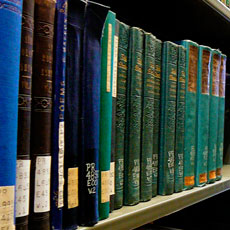
Enhancing Online Student Learning with Academic Library Services
I begin with a caveat. I am not an academic librarian. In fact, I have never worked in a library. However, as a former instructor


I begin with a caveat. I am not an academic librarian. In fact, I have never worked in a library. However, as a former instructor

Regardless of one’s academic discipline or the courses that we teach, college faculty members share a responsibility to prepare our students for success in our

A common practice at many colleges and universities involves course faculty inviting librarians into their classrooms to teach research and information literacy skills and concepts
Community College instructors have a great deal to teach: study skills, a college orientation to education, and the actual course information for their discipline. They also know that their students must be information literate, must know how to find supplementary information for each course, how to use information effectively, and how to credit their sources appropriately. In this regard, Washington State Community and Technical Colleges have been working under an LSTA grant on Information Literacy from 2008-2012 (Washington). Lower Columbia College libraries have been using the grant to integrate librarians or library tutorials into face-to-face and online classes, thereby offering information literacy instruction to students without increasing the teaching load of the discipline instructors. When incorporated with research assignments, this instruction, along with embedded librarians, facilitates both student learning and faculty grading of assignments.

A recent survey of faculty handouts for research assignments found that most of the handouts provided details for length, citation guide style and how to get assistance from the faculty member. What wasn’t included was a critical need for most undergraduate students: context for the research topic.
Get exclusive access to programs, reports, podcast episodes, articles, and more!